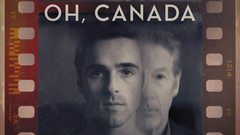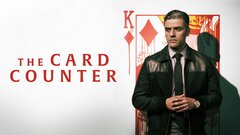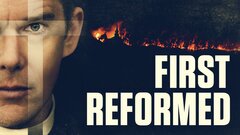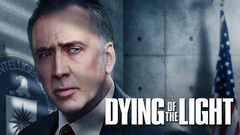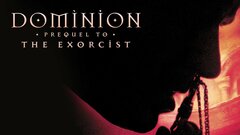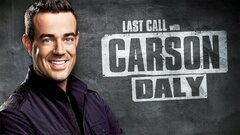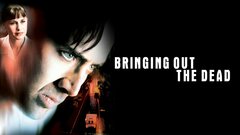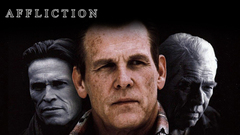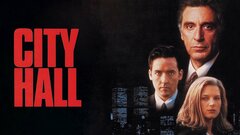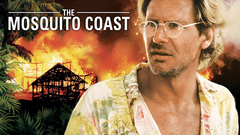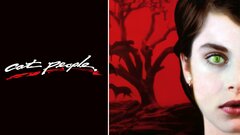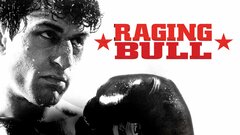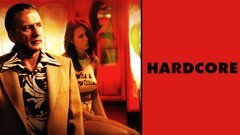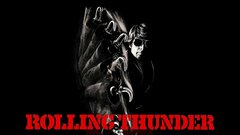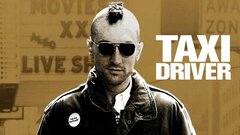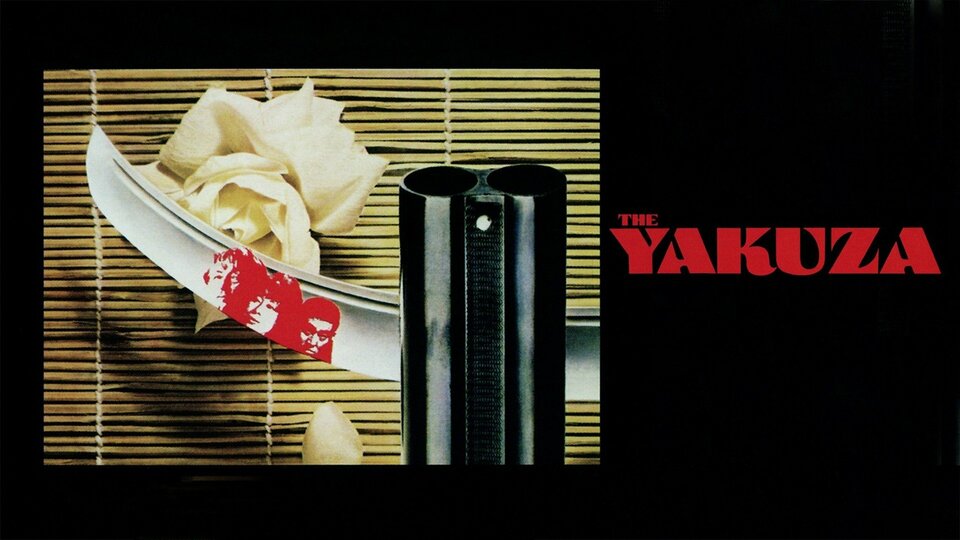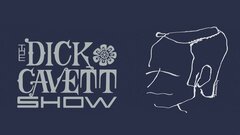Once called the best screenwriter never to be nominated for an Oscar, writer-director Paul Schrader emerged in the 1970s as one of American cinema's most compelling contributors, thanks in large part to his collaborations with director Martin Scorsese on some of the best movies ever made. After marking his writing debut with the underrated thriller "The Yakuza" (1975), Schrader wrote the dense and gritty "Taxi Driver" (1976) for Scorsese, creating arguably one of cinema's most memorable lead characters in Travis Bickle (Robert De Niro).
He went on to write "Obsession" (1977) for Brian De Palma before making an auspicious directorial debut with "Blue Collar" (1978). But Schrader saved his best for his second collaboration with Scorsese and De Niro, "Raging Bull" (1980), an unrelenting portrait of a man, Jake La Motta, gripped by unceasing violence. He also directed Richard Gere in "American Gigolo" (1980), and collaborated with Scorsese again on "The Last Temptation of Christ" (1988).
Born on July 22, 1946 in Grand Rapids, MI, Schrader was raised by his father, Charles, a business executive and his mother, Joan, a homemaker. Both his parents were strict Dutch Calvinists and used fire-and-brimstone methods to punish their two sons, claiming that they would go to hell for every little thing they did. Whippings and other forms of extreme punishment were routine.
His parents also barred him and his brother, Leonard, from ever watching movies. In fact, Schrader never saw one until he was 18 years old and snuck into a showing of "The Absent-Minded Professor" (1961), an experience that left him wondering what the fuss was all about. Despite the small moment of rebellion, Schrader followed his parents' wishes and enrolled at Calvin College as a theology and philosophy major.
Just before his senior year, he took a summer film courses at Columbia University and became convinced that movies could examine secular and spiritual issues. Encouraged by noted film critic Pauline Kael, whom he met at Columbia, Schrader moved on to study at the American Film Institute in 1969 and to earn his master's degree in film from the University of California, Los Angeles in 1970.
In short order, Schrader was working as a film critic, writing for the Los Angeles Free Press and Cinema magazine while publishing the influential study Transcendental Style in Film: Ozu, Bresson, Dreyer (1972). But he declined offers to work full-time as a film reviewer and instead concentrated on a screenwriting career. Along with his brother, Leonard, and Robert Towne, Schrader co-wrote the Japanese underworld thriller, "The Yakuza" (1975), which sold for $325,000 in a bidding war - the highest amount ever paid for a script at the time.
Directed by Sydney Pollack and starring Robert Mitchum as a retired soldier who returns to Japan to rescue his friend's daughter, the gritty thriller failed to impress at the box office, but did managed to attract the attention of New Hollywood directors like Brian De Palma and Martin Scorsese. He collaborated with Scorsese for the first time on "Taxi Driver" (1976), a classic study of urban alienation with an existential hero, Travis Bickle (Robert De Niro), whose disgust with the seemly underbelly of New York City prompts him to save an 11-year-old prostitute (Jodie Foster) from her low-life pimp (Harvey Keitel).
Hailed as a masterpiece of American cinema, "Taxi Driver" was a hit at the time of release, earning four Academy Award nominations - but none for Schrader - while routinely being named throughout the decades as one of the best movies ever made. Schrader moved on to pen "Obsession" (1977) with Brian De Palma, a haunting homage to Alfred Hitchcock's "Vertigo" (1958) with a somewhat spiritual twist that became the director's first box office hit amidst mixed reviews and minor controversy for brushing against the theme of incest.
He grew increasingly disenchanted with the lack of control screenwriters had when the final versions of "Rolling Thunder" (1977) and "Close Encounters of the Third Kind" (1977) failed to resemble anything he had written. Hoping to exercise more control, Schrader made his directorial debut with "Blue Collar" (1978), a gripping, muckraking account of autoworker exploitation in Detroit starring Richard Pryor and Harvey Keitel.
The film was hailed for its bleak and angry portrayal of spurned workers who plot to rob their union, while Pryor was singled out for what many considered to be his finest dramatic performance. Meanwhile, Schrader continued to churn out scripts with his brother, including "Old Boyfriends" (1978), an intimate drama about a woman (Talia Shire) looking up old boyfriends (John Belushi and Richard Jordan) who played important roles in her life, only to extract comedic revenge upon them.
Schrader garnered attention with his next directing effort, the flawed but undeniably compelling "American Gigolo" (1980), which cast Richard Gere as a male escort who falls in love with one of his clients (Lauren Hutton). Audiences flocked to the movie, even though controversy brewed because Gere became the first male actor to appear frontally nude on screen.
That same year, Schrader reunited with Scorsese to write what many deemed the most important film of the 1980s, if not of all time, "Raging Bull" (1980). Starring Robert De Niro as former middleweight boxer Jake La Motta, "Raging Bull" was a brutal examination of a man consumed by violence who loses everything after throwing a fight to appease the mob. Gritty, forceful and unrelenting, the film was a financial disaster upon its release, though over the years its stature as one of the finest films in American cinema loomed large.
But despite Oscar nods for Scorsese and De Niro, Schrader once again found himself left out of contention. Back in the director's chair, he helmed the uneven remake of "Cat People" (1981), which starred Natassja Kinski as a beautiful and mysterious woman who discovers a dangerous family secret. Schrader and Kinski engaged in a rather unhappy romance that led to a split shortly after filming concluded.
He went on to marry actress Mary Beth Hurt in 1983 and have two children, Molly and Sam. Schrader went on to write and direct the ambitious, multi-layered biopic, "Mishima: A Life in Four Acts" (1985), a portrait of controversial, but celebrated Japanese author Yukio Mishima (Ken Ogata). The film earned distinction at the Cannes Film Festival, but failed to attract much attention in the United States.
He once again collaborated with Scorsese on the director's highly controversial look at the life and death of Jesus (Willem Dafoe), "The Last Temptation of Christ" (1988), which Schrader adapted from Nikos Kazantzakis' speculative novel. An outcry from Catholics and other Christian groups erupted over an extended dream sequence toward the film's end of Jesus not dying on the cross, but instead living the life of a normal man, including making love to his wife Mary Magdalene (Barbara Hershey).
Though the sequence was a dream and Jesus' last temptation from Satan, the hue and cry nonetheless forced the filmmakers to put a disclaimer before the movie stating that content was not based on the gospels. Regardless of the controversy, "Last Temptation" was embraced by critics and audiences, while even some religious groups praised their portrayal of Christ as one of the most honest seen on screen.
Schrader moved on to direct "Patty Hearst" (1988), a rather underwhelming biopic which starred Natasha Richardson as the famed heiress forced into robbing banks with the militant Symbionese Liberation Army. He next worked from Harold Pinter's screenplay based on the Ian McEwan novel to helm the fascinating, but ultimately empty thriller "The Comfort of Strangers" (1991), starring Richardson, Rupert Everett and Christopher Walken.
Schrader next directed the dark morality drama "Light Sleeper" (1992), a finely acted film about a high-end drug dealer (Willem Dafoe) suddenly on his own after his boss (Susan Sarandon) leaves the business. After directing the made-for-cable mystery "Witch Hunt" (HBO, 1994), he wrote the pages for "City Hall" (1996), an idealistic political drama starring Al Pacino and John Cusack.
In 1997, he wrote and directed "Touch," a satirical drama based on Elmore Leonard's novel about an innocent (Skeet Ulrich) who gets caught up in a media circus when he discovers that he can perform miracles. With "Affliction" (1998), Schrader turned in his most personal work in telling the story of a troubled small-town cop (Nick Nolte) who clashes with his abusive father (James Coburn) while trying to investigate a murder. A hit with critics, the performances from Nolte and eventual Oscar winner James Coburn were widely praised, though once again Schrader was left out of major awards contention.
Schrader worked less in the period immediately following the triumph of "Affliction." Although his renewed collaboration with Scorsese as the screenwriter on the director's bizarre, but tense urban drama "Bringing Out the Dead" (1999) drew significant pre-release interest, the film was criticized for lacking the power and substance of the duo's earlier collaborations. Returning to the small screen, Schrader wrote and directed the tortured love story "Forever Mine" (Starz, 2000), a modern-day film noir about a high-end fixer (Joseph Fiennes) hired to help a troubled politician (Ray Liotta), only to turn out to be seeking revenge for a wrong committed years ago.
Schrader moved on to more familiar territory as the director of "Auto Focus" (2002), a dark docudrama chronicling the kinky secret sex life of 1960s "Hogan's Heroes" star Bob Crane (Greg Kinnear), whose obsession with filming his exploits with fellow sex addict John Henry Carpenter (Willem Dafoe) ultimately leads to his untimely death. Both compelling and somehow off-putting at the same time, "Auto Focus" was hailed for its quality performances from Kinnear and Dafoe, and was ranked alongside Schrader's finest work.
Schrader next helmed a surprisingly mainstream and commercially minded project, the prequel "Exorcist: The Beginning" (2004), after original director, John Frankenheimer, died prior to production. Schrader battled the studio as he shot his version to completion, only to be fired and replaced by director Renny Harlin, who subsequently threw out a bulk of his material.
But when Harlin's film failed to scare up an audience, the studio released Schrader's version under the title "Dominion: Prequel to the Exorcist" (2005), which like Harlin's movie, remained largely overlooked by all but the most curious. Schrader left that debacle behind to write and direct his next project, "The Walker" (2007), a direct-to-DVD drama that recalled "American Gigolo" and starred Wood Harrelson as the gay son of a U.S. senator who serves as an asexual escort to middle-aged D.C. women, only to find himself caught up in a murder he tries to keep under wraps.
Schrader went overseas to direct his next film, the Israeli-German production "Adam Resurrected" (2008), which starred Jeff Goldblum as a Jewish circus entertainer kept alive by the Nazis during the Holocaust to entertain fellow Jews as they are marched to their deaths.
